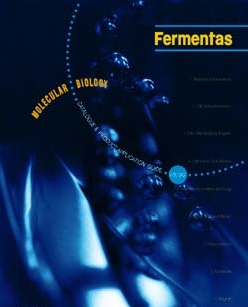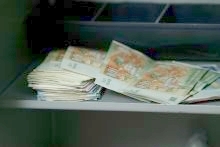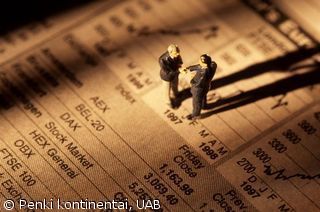The Russian Gas monopoly Gazprom intends to take action in order to force The Ukraine to pay for gas and stop the country from exporting it to Europe.
Published:
7 July 2000 y., Friday
Russian deputy Prime Minister Viktor Khristenko has reported that gas deals between the two CIS members are to be radically revised and a new payment procedure is to be introduced soon. By October 1st this year, the Russian government will have prepared a set of documents regulating gas transactions between the two states. Judging from the published excerpts from those documents, Russia will no longer tolerate The Ukraine’s non-payment and gas theft.
Firstly, to stop gas deliveries through The Ukraine would mean loosing lucrative contracts with Germany. Secondly, Kiev has cunningly managed to use Gazprom’s and the Russian authorities’ interests to suit its own ends, by promising the Kremlin that The Ukraine could delay its bid to enter NATO. The Russian authorities willingly bought these promises.
Politics aside, there were also economic reasons for Russia’s lenience towards The Ukraine. Gazprom has always acted as a private legal entity, although the Russian government holds a 41% stake in the gas giant. However, Gazprom continuously delayed tax payments, omitted dividends, and state representatives were given a disproportionately low share of the seats on Gazprom’s board of directors.
The government therefore did not take great pains to defend Gazprom’s interests.
Russia also insists that The Ukraine should stop illicit gas deliveries to Europe. The problem is that The Ukraine purchases Russian gas on favorable terms, regularly delays payments to Gazprom and then resells gas at high European prices, thus disrupting the stability of European gas supplies.
Šaltinis:
Internet
Copying, publishing, announcing any information from the News.lt portal without written permission of News.lt editorial office is prohibited.
The most popular articles
 Elinor Ostrom -- an American professor who developed ways to manage common property - is the first woman to win the Nobel prize for economics.
more »
Elinor Ostrom -- an American professor who developed ways to manage common property - is the first woman to win the Nobel prize for economics.
more »
 The European Commission has today approved an application from the Netherlands under the Globalisation Adjustment Fund (EGF) for € 386 114 to help 435 workers made redundant by Heijmans N.V., a Dutch construction company, back into jobs.
more »
The European Commission has today approved an application from the Netherlands under the Globalisation Adjustment Fund (EGF) for € 386 114 to help 435 workers made redundant by Heijmans N.V., a Dutch construction company, back into jobs.
more »
 Seeking to strengthen and further expand product sales in the Asian region, the Lithuanian biotechnology company Fermentas established its subsidiary in China.
more »
Seeking to strengthen and further expand product sales in the Asian region, the Lithuanian biotechnology company Fermentas established its subsidiary in China.
more »
 Statistics Lithuania reports that, based on non-final data obtained from customs declarations and Intrastat reporting data, exports in January–August 2009 totalled LTL 25.6 billion, while imports – LTL 28.9 billion.
more »
Statistics Lithuania reports that, based on non-final data obtained from customs declarations and Intrastat reporting data, exports in January–August 2009 totalled LTL 25.6 billion, while imports – LTL 28.9 billion.
more »
 On 6 October 2009 AB Bank SNORAS Board decided to reform the Private Limited Company UAB “SNORO investicijų valdymas” into the Public Limited Company AB „Finasta Holding“, which will control recently obtained „Finasta“ group companies and other Bank SNORAS group companies, engaging in investment management.
more »
On 6 October 2009 AB Bank SNORAS Board decided to reform the Private Limited Company UAB “SNORO investicijų valdymas” into the Public Limited Company AB „Finasta Holding“, which will control recently obtained „Finasta“ group companies and other Bank SNORAS group companies, engaging in investment management.
more »
 If your airline goes bankrupt and leaves you stranded what are your legal rights? Members of the Parliament's Transport Committee want grounded passengers to have access to a special compensation fund.
more »
If your airline goes bankrupt and leaves you stranded what are your legal rights? Members of the Parliament's Transport Committee want grounded passengers to have access to a special compensation fund.
more »
 Euro report says currency provided protection from interest and exchange rate turbulence.
more »
Euro report says currency provided protection from interest and exchange rate turbulence.
more »
 Statistics Lithuania informs that in September 2009, against August, prices for total industrial production sold dropped by 1.6 per cent.
more »
Statistics Lithuania informs that in September 2009, against August, prices for total industrial production sold dropped by 1.6 per cent.
more »
 The European Bank for Development and Reconstruction (EBRD), the European Investment Bank (EIB) Group, and the World Bank Group* on Monday warned against complacency in the face of significant challenges that stand in the way of economic recovery in Central and Eastern Europe.
more »
The European Bank for Development and Reconstruction (EBRD), the European Investment Bank (EIB) Group, and the World Bank Group* on Monday warned against complacency in the face of significant challenges that stand in the way of economic recovery in Central and Eastern Europe.
more »
 The leader of the country’s investment products’ market – AB DnB NORD Bankas – intends to issue up to EUR 300 million nominal value corporate notes in local and foreign markets over the next 12 months.
more »
The leader of the country’s investment products’ market – AB DnB NORD Bankas – intends to issue up to EUR 300 million nominal value corporate notes in local and foreign markets over the next 12 months.
more »